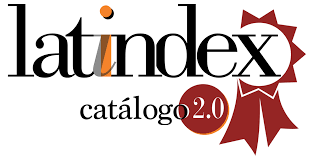Revista de Arquitectura is an open access journal. More information...
Authors retain copyright and grant to the Revista de Arquitectura the right of first publication, which will be simultaneously subject to the Creative Commons (CC) BY-NC license.
Authors will sign a non-exclusive distribution license for the published version of the article by completing (RevArq FP03 Permission to Reproduce).
Self-archiving will comply with SHERPA/RoMEO guidelines and the Green classification.
To see in detail these guidelines, please consult...
Abstract
If to establish specific methods for the study of the History or of the histories, it has frustrated, before to stimulate new intents of understanding approach of their reason, then it is convenient to revise the theoretical context in which the contemporary tendencies are debated about the possibility of finding historical truths. This text looks for, as objective, to schematize this context, starting from some basic questions: the necessity that exists inevitably, or not, of a method in the research and the teaching of the History of the Architecture; the existence, or not, of cognoscible laws so that this method is applicable; the necessity to reread, or not, the histories that have been written, with or without the resource of a method; and, as conclusion, the historian’s responsibility to maintain a serious and critical “revisionist” posture to avoid the noxious arguments that, nevertheless, have been presented as unquestionable.
Keywords

References
BENJAMÍN, Walter. Sul concetto di storia, Torino: Einaudi, 1997.
BURKE, Peter El uso de la imagen como documento histórico. Barcelona: Crítica, 2005.
CHRISTOPHER, Lloyd. Explanation in social history, Oxford: Basil Blackwell, 1986.
COLMENARES, Germán. Ciencia histórica y tiempo presente, en: Ensayos sobre historiografía. Santa Fe de Bogotá: TM Editores, Universidad del Valle, 1997, p. 22.
DANTO, Arthur C. Después del fin del arte: El arte contemporáneo y el linde de la historia, Barcelona: Paidós, 1999.
ELIADE, Mircea. Aspects du mythe, Saint-Amand: Gallimard, 1975.
FONTANA, Josep. ¿Para qué sirve la historia en un tiempo de crisis? Bogotá: Pensamiento Crítico, 2003.
FUKUYAMA, Francis. El fin de la historia y el último hombre, Bogotá: Planeta, 1992.
GOMBRICH, Ernst. La belleza y la fealdad son principios incuestionables, entrevista en: Guy Sorman. Los verdaderos pensadores de nuestro tiempo. Bogotá: Seix Barral, 1991.
GOMBRICH, Ernst. Breve historia de la cultura, Barcelona: Península, 2004.
HOBSBAWM, Eric. Sobre la historia. Barcelona: Crítica, 1998.
LE CORBUSIER, Principios de urbanismo (La Carta de Atenas), Barcelona: Planeta-Agostini, 1993, p. 63.
NEIRA, Mauricio Archiva. El historiador ¿o la alquimia del pasado?, en: Ortiz, Carlos Miguel y Tovar , Bernardo. Pensar el pasado. Bogotá: Archivo General de la Nación, 1997.
POPPER, Karl. R. Acerca de la historiografía y el sentido de la historia, en: La responsabilidad de vivir. Barcelona: Paidós, 1995.
TOPOLSKY , Jerzy La verdad posmoderna en la historiografía, traducción de Roch Little, en: ORTIZ, Carlos Miguel; TOVAR, Bernardo. Pensar el pasado Bogotá: Archivo General de la Nación, 1997.
TSHUMI, Bernard. Architecture and disjunction, Cambridge: The MIT Press, 1998.
TZARA, Tristan. Siete manifiestos Dada, Barcelona, Tusquets, 1999, p. 25.
WHITE, Hayden. Metahistoria, México: Fondo de Cultura Económica, 1992.






























